5 Ways Protein Powder Can Cause Weight Gain
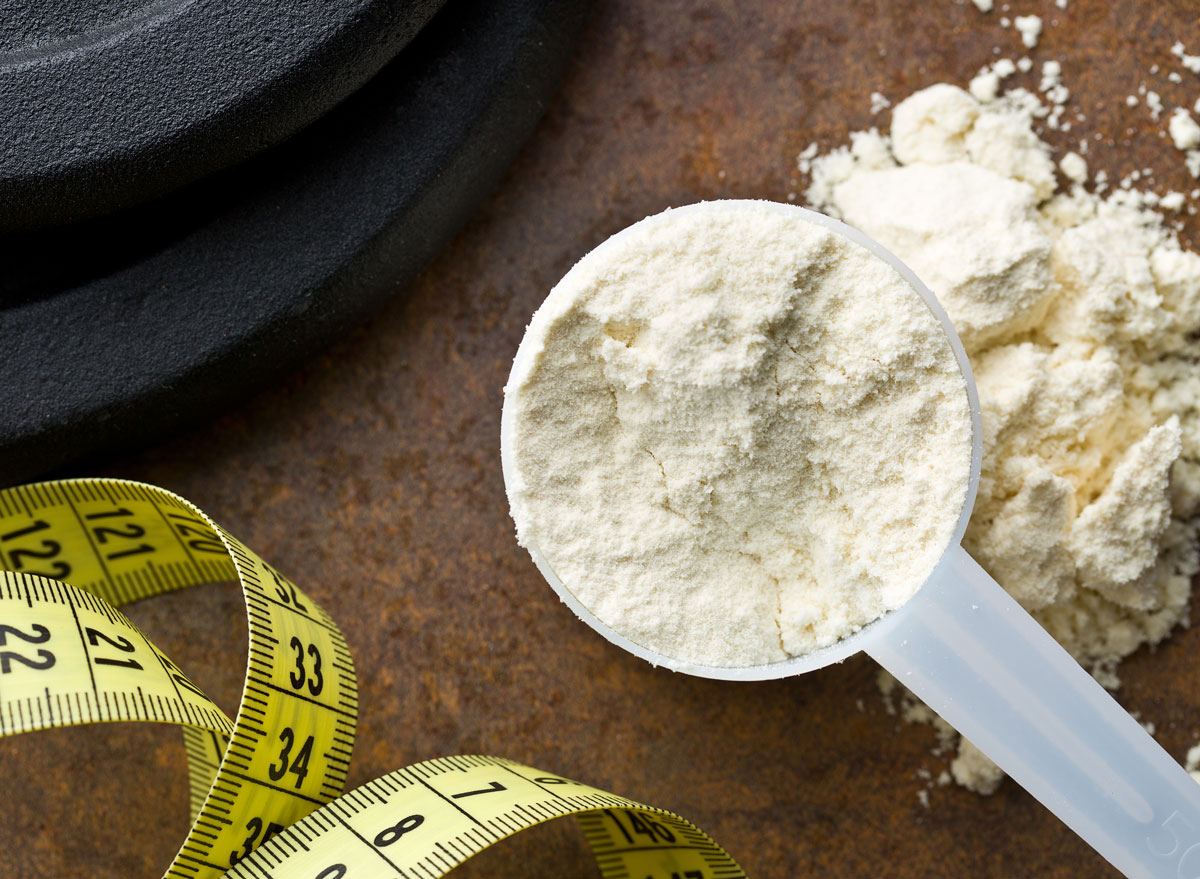
What sounds more enticing: prepping, seasoning, and cooking a raw chicken breast in the oven for 30 minutes or opening a bag, scooping some protein powder into a shaker bottle, and sipping? Regardless of your preference (hey, we can't argue that the benefits of eating chicken are pretty awesome), you can't deny that using a powder to get your protein is incredibly easy.
But just because using protein powder is convenient doesn't mean that it's free of drawbacks. If you're making these protein powder mistakes, you may even gain weight. Read on to discover the protein habits that may be behind your recent weight gain, and for more, don't miss 10 Best Protein Powders For Weight Loss In 2020, According To RDs.
You're eating too much protein
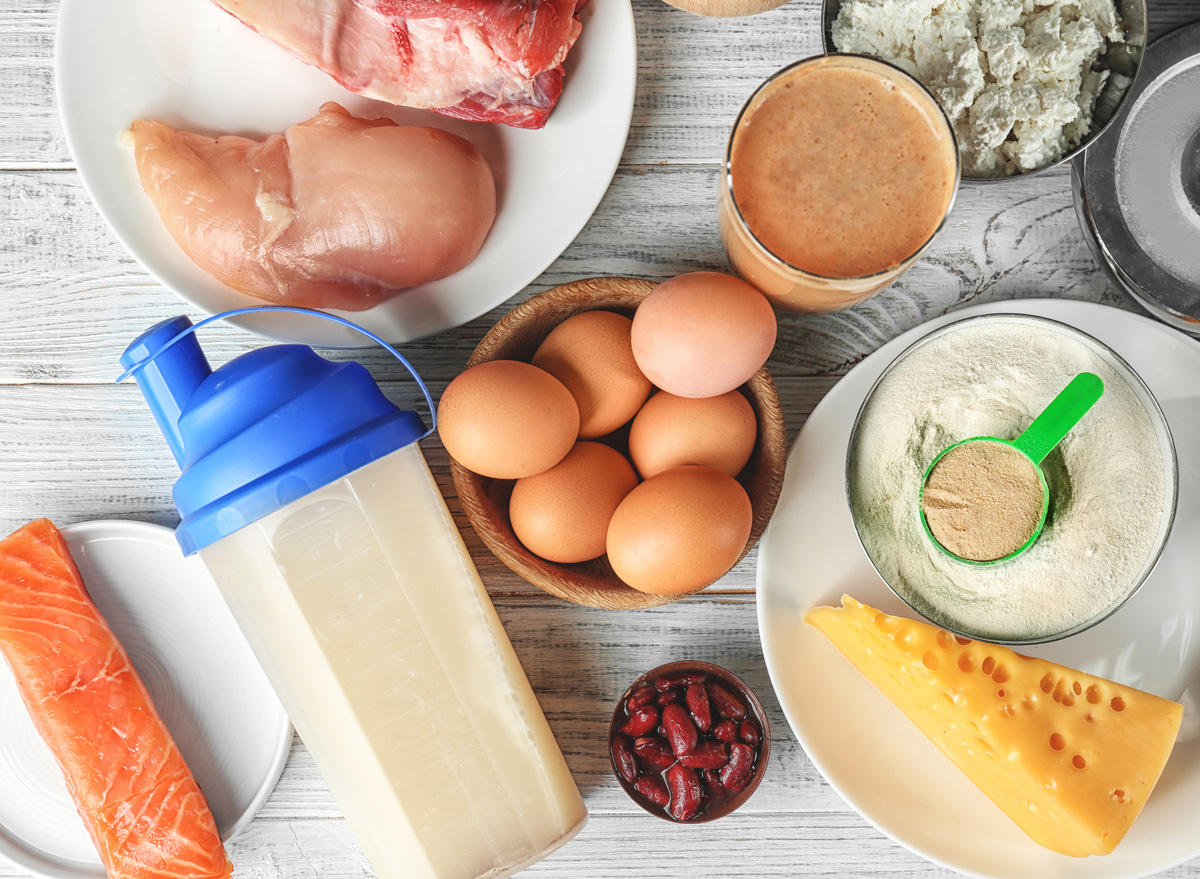
Despite all this talk about getting more protein in your diet, the fact is that most Americans are getting enough in their regular diets. Not only that, but some people—particularly men between the ages of 19 and 70—are actually consuming even more protein than the daily recommended amount, according to the USDA's Dietary Guidelines. What does that mean? Even though protein is good for you, it still has calories, which means that eating too much of it may cause you to gain weight. If you're not working out, are following a regular diet, and are supplementing your diet with regular protein shakes, you may be increasing your calorie intake beyond your basal metabolic rate—or how many calories you need per day to maintain your current weight.
You're not measuring it properly
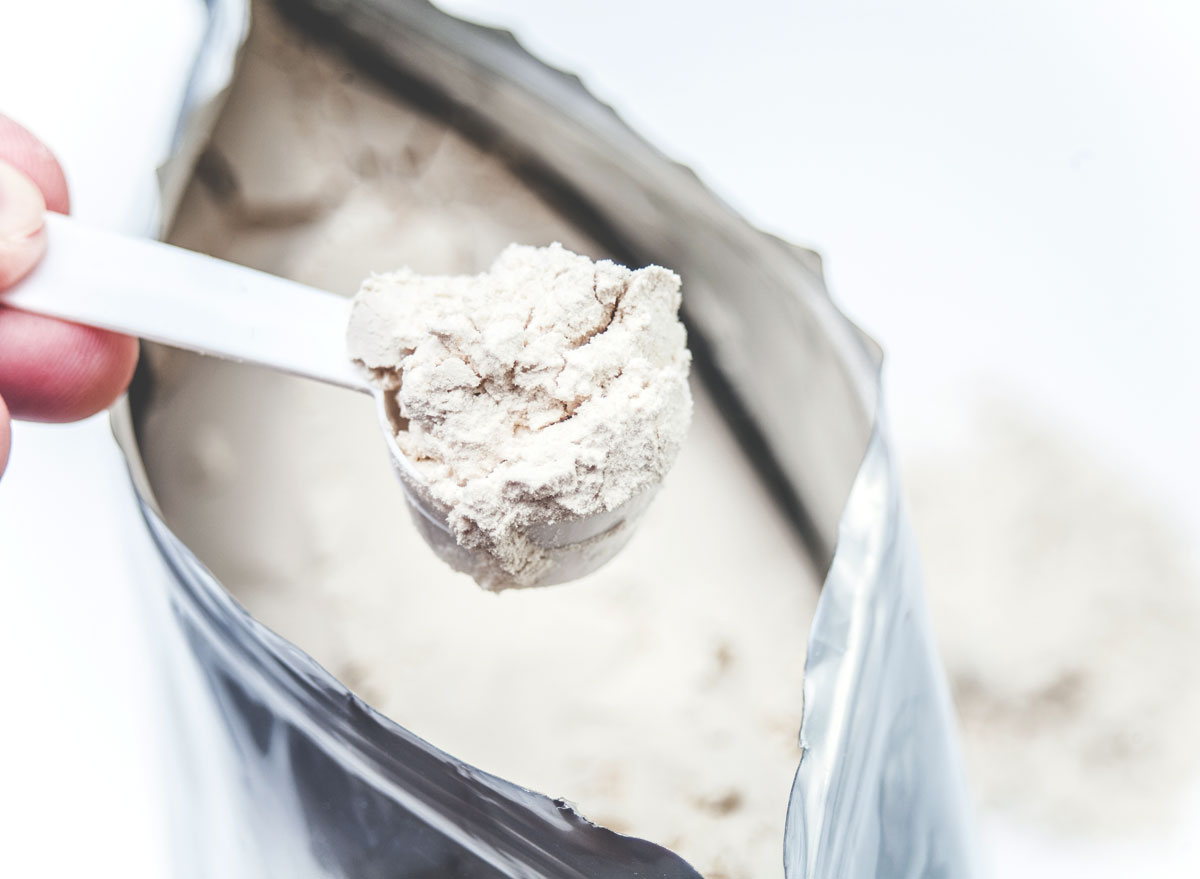
Your protein powder may claim it has 15 grams of protein per serving on the front of the container, but you have to be careful to make sure you're actually getting what you're looking for. Oftentimes, brands will provide you with smaller scoopers (hey, it saves money!), and they write on the nutrition label that you'll need two scoops to get that 15 or 18 grams of protein. If you don't catch this, and you're only using one, you'd be reaping 7 grams of the muscle-building stuff.
While that's by no means a bad thing, it can be troublesome if you're making a protein smoothie and were relying on protein to balance out the carbs and sugars. Less protein means you're not going to reap the same digestion-slowing benefits of protein as you would with touble. As a result, you could be misled into thinking you can drink a larger smoothie with more carbs and sugar, which may actually make you gain weight.
You're not drinking the right amount after a workout
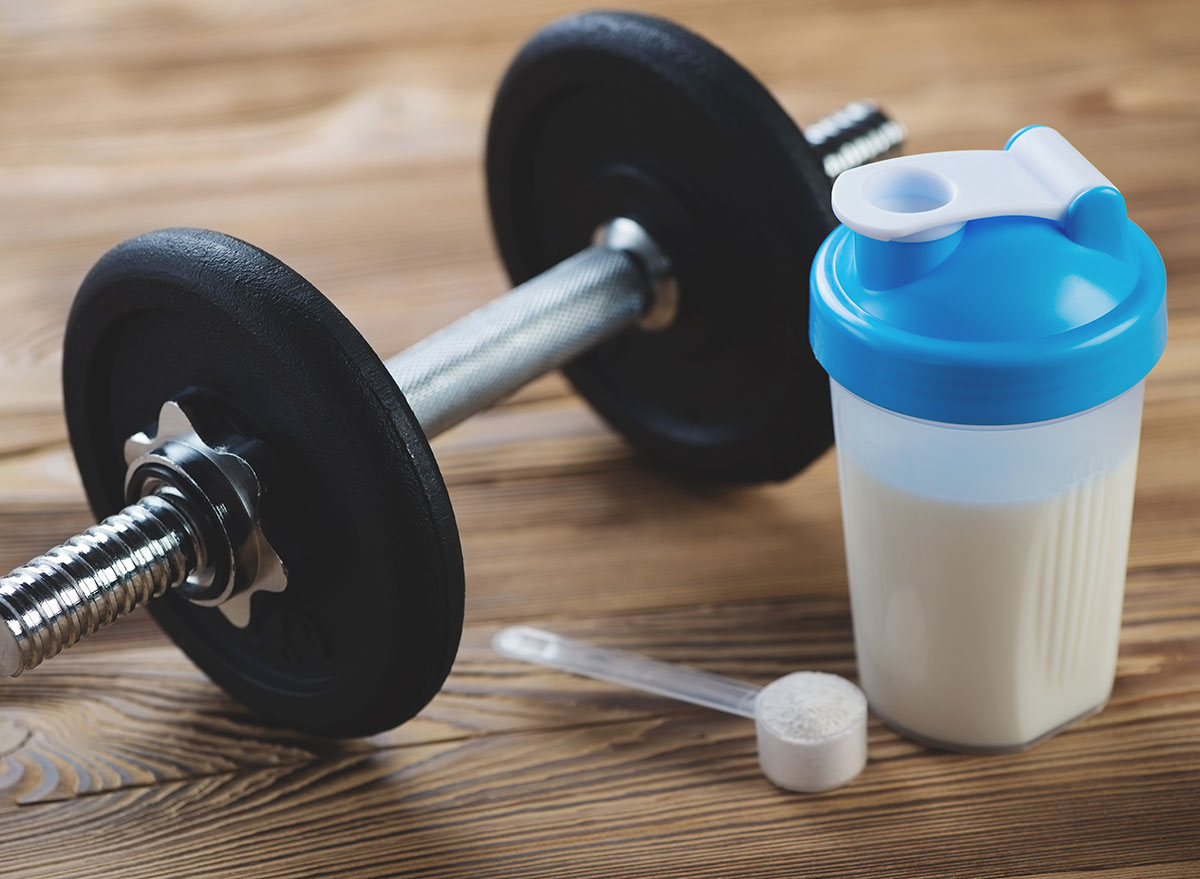
As we've been saying, more protein isn't always better. And that even applies to active people whose caloric and protein needs are higher than their sedentary peers. So those post-workout protein shakes and bars? Take a look at their nutrition labels. Anything over 25 grams, and your body won't be able to utilize it all. An International Journal of Sports Nutrition and Exercise Metabolism study showed that 10 grams of essential amino acids—which equates to 25 grams of a complete protein—is enough to maximally stimulate protein synthesis. (Other studies have found it can be as little as 10 grams.) In other words: the average person probably doesn't need to scarf down that 30-gram protein bar. That extra protein will be processed just like any excess calories, and your body could turn it into fat.
You're relying on protein powder as your only protein source
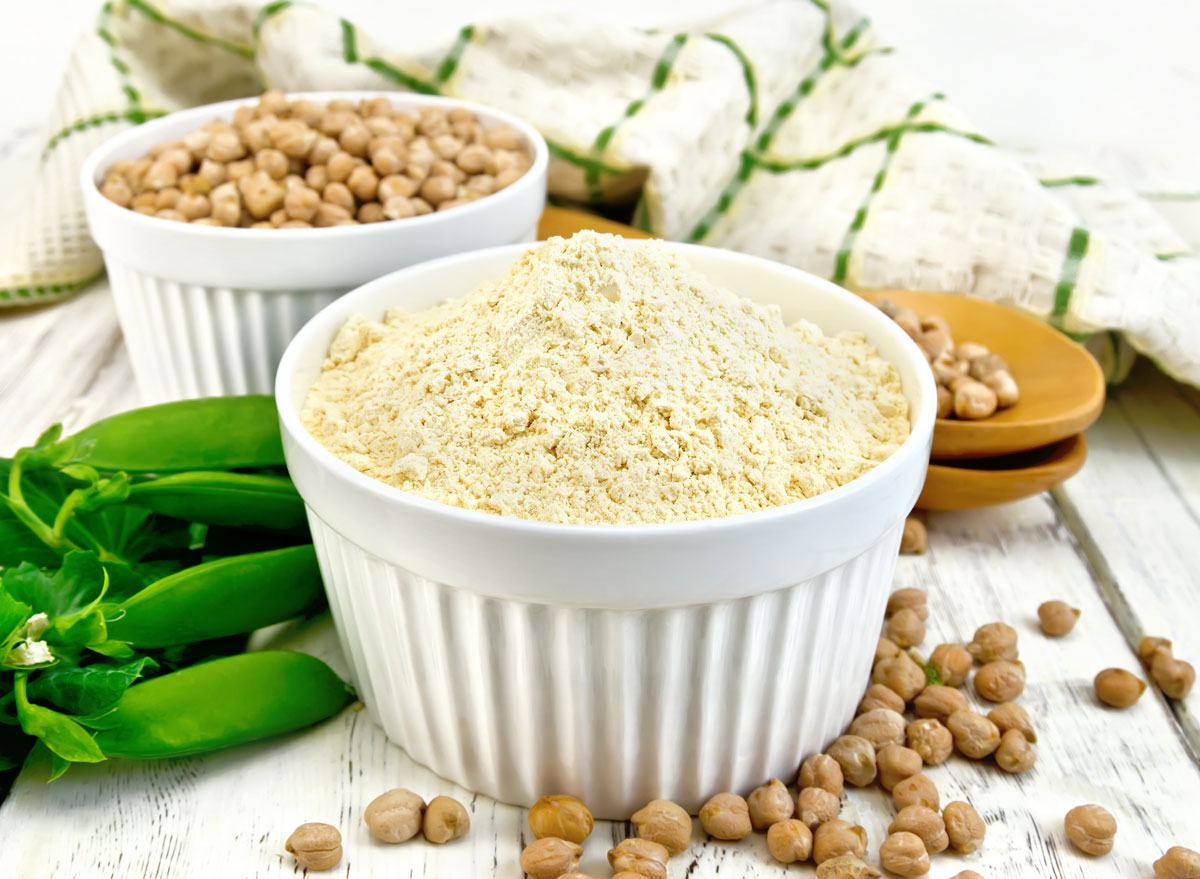
Calling all vegetarians and vegans! If you're new to the plant-based life from an animal protein-rich diet, it's common to have trouble learning how to eat more plant-based proteins. (Although, there are 26 Best Vegetarian Sources of Protein.) During this transition period, you may decide to supplement your diet with a protein powder—no problem. But it can become a problem if you're only relying on plant protein powder.
Opting for a protein isolate will provide your body with protein, but these powders are seriously lacking in the macro and micronutrients present in whole food proteins. Think: beans, quinoa, nuts, and seeds. You'd be missing out on fiber, healthy fats, vitamins, minerals, antioxidants, and more. Beans, in particular, are one of the foods highest in protein for vegans and vegetarians. They also happen to be high in fiber. If you don't get that fiber, you're more likely to gain weight. A The Journal of Nutrition study that tracked overweight patients' diets found a strong association between high fiber intake and weight loss.
You're buying a whey protein concentrate.
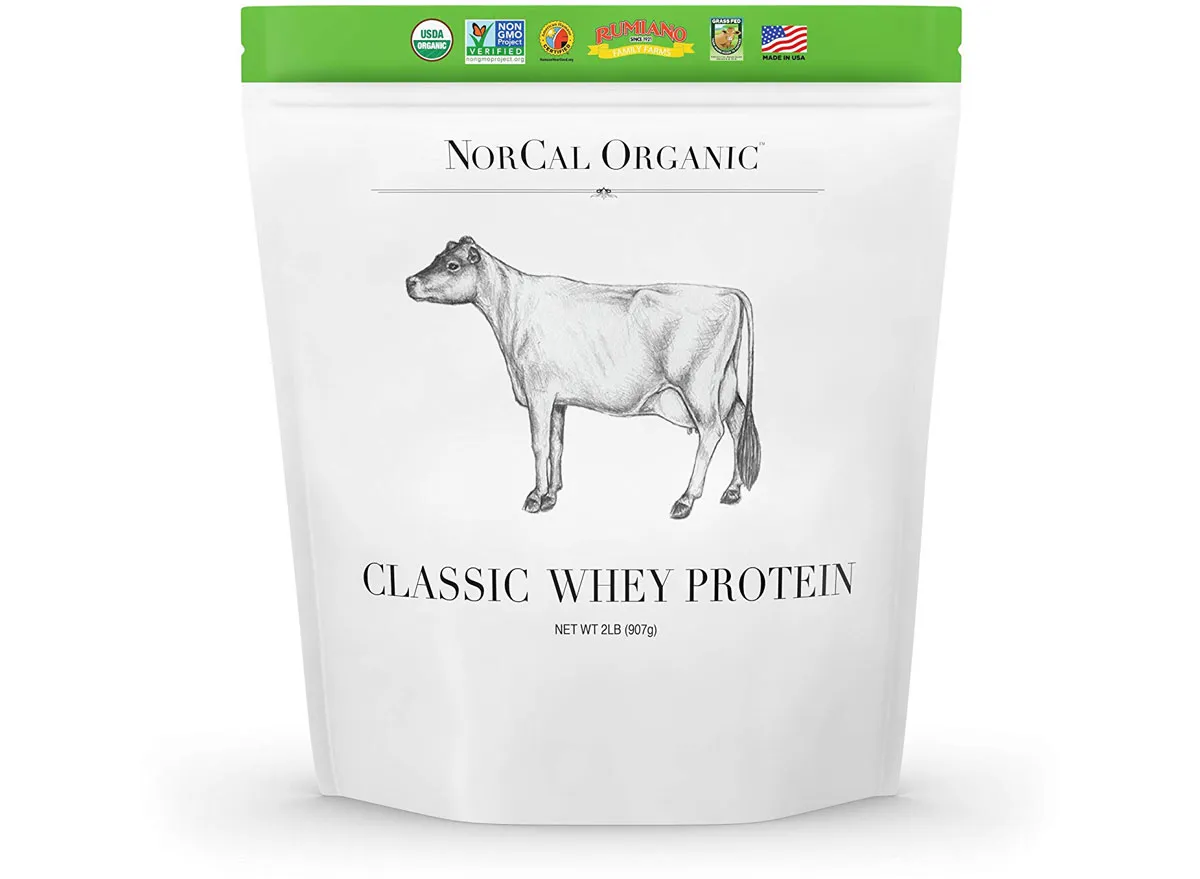
Now there's nothing wrong with whey protein concentrate. (After all, it's a great source of amino acids and one of the most digestible forms of protein you can consume.) However, if you're lactose intolerant, making this your top protein powder source won't be doing a body good. You could be building up inflammation in your body by consuming a food your body can't process. Inflammation leads to a host of issues, from skin problems to mood regulation struggles. Weight gain is another side effect of high levels of inflammation. If you must stick to dairy-based protein powder, at least consider a whey protein isolate. It has a much lower amount of milk solids and sugars that give those suffering from a lactose intolerance bloating and inflammation. In an ideal world, you should probably switch to The Best Vegan Protein Powders for Your Muscle-Building Needs.








